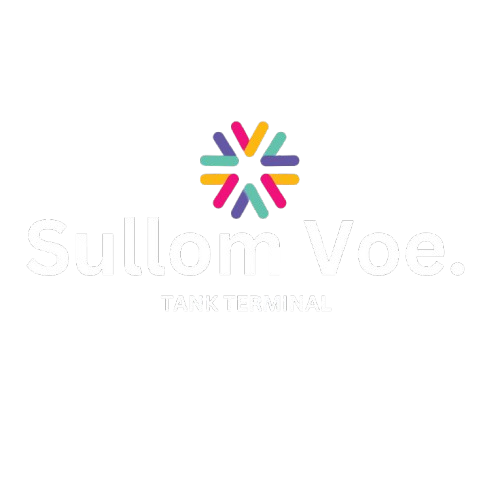Oil Tanks for Storage of Crude Oil: What You Need to Know
In today’s complex oil and gas landscape, oil tanks for storage of crude oil play a critical role in maintaining global energy stability. These storage systems provide safe containment for petroleum products during extraction, refining, and distribution. Whether you’re in upstream production or downstream logistics, understanding the function and design of oil tanks is essential.
At Sullom Voe Terminals, we specialize in providing scalable, secure, and regulation-compliant storage solutions for businesses around the world. If you’re looking to lease reliable tank farm infrastructure, read on to learn why our services can meet your operational needs.
What Are Oil Tanks for Storage of Crude Oil?
Oil tanks for storage of crude oil are industrial-grade containers designed to store large volumes of unrefined petroleum. These tanks serve as temporary holding spaces for crude oil before it undergoes processing or is distributed to refineries or shipping terminals.
Depending on capacity and environmental considerations, oil tanks are built using high-strength carbon steel or specialized alloys. They may be installed above ground or below ground and include features such as floating roofs or pressure-control systems to prevent spills and contamination.
Tank farms, consisting of multiple tanks, often support regional and international supply chains by serving as key logistical hubs.
Types of Crude Oil Storage Tanks
There are various types of oil tanks for storage of crude oil. These include fixed roof tanks, floating roof tanks, and spherical tanks. While each type serves a specific purpose, they all offer durability and containment for different oil volumes. As a result, selecting the right tank depends on the operational requirements and the chemical properties of the crude oil.
1. Fixed Roof Tanks
These are best for storing low-volatility crude oil. The roof is permanently affixed to the tank shell, minimizing evaporation but requiring proper ventilation.
2. Floating Roof Tanks
Used for high-volatility liquids, floating roof tanks minimize vapor losses by adjusting with the oil level. This reduces fire risks and environmental contamination.
3. Bullet Tanks
Though less common for crude oil, bullet tanks store pressurized liquids and gases. They’re mostly used in specialized operations involving liquefied gases or additives.
4. Spherical Tanks
Rare and costly, spherical tanks are used for storing volatile products under pressure. These are not typical for crude oil but can be part of large-scale integrated systems.
Regulatory Compliance and Safety Standards
To ensure safety, storage tanks must meet specific industry standards such as API 650 or UL 142. These standards govern tank design, construction, and maintenance. Additionally, compliance with environmental regulations—like secondary containment rules—is non-negotiable. For this reason, companies must continuously monitor tank integrity and environmental impact.
-
EPA Spill Prevention, Control, and Countermeasure (SPCC) Rule
-
API 650 and 653 Standards for tank construction and maintenance
-
Fire Safety Guidelines (NFPA)
-
Corrosion and Leak Detection Protocols
At Sullom Voe Terminals, we ensure every tank meets international and local compliance standards. Our facilities in the UK and Houston are built to handle various crude oil specifications with maximum security.
Why Proper Crude Oil Storage Matters
The stability of the global oil market often depends on how well crude oil is stored. Inadequate or poorly maintained storage can result in:
-
Product degradation
-
Emission of harmful vapors
-
Explosions or fire
-
Legal liabilities due to spills or contamination
Proper storage tanks provide buffer capacity during market surges and protect your investment from loss or downtime.
How Sullom Voe Terminals Supports Efficient Storage
Our terminal infrastructure includes high-capacity crude oil tanks designed for optimal flow, quality preservation, and logistical efficiency. Here’s what we offer:
-
Large-scale storage capacity with custom tank sizing
-
Floating and fixed roof tanks built to API standards
-
Real-time monitoring systems for pressure, temperature, and volume
-
Access to major shipping routes via our Houston port and UK facility
-
Flexible leasing terms with maintenance and regulatory support
→ Contact us today to lease an oil tank suited to your crude oil storage needs.
Key Features and Benefits of Oil Tanks for Crude Oil
| Feature | Benefit |
|---|---|
| Leak prevention systems | Ensures safety and avoids legal penalties |
| Scalability | Expand capacity as business grows |
| Corrosion-resistant materials | Extends lifespan of tanks |
| Remote access monitoring | Enables proactive maintenance and security |
Choosing the Right Tank Farm Partner
When leasing or investing in oil tanks for storage of crude oil, always consider:
-
Experience and Track Record
Choose a provider with proven success in managing large-volume storage across international markets. -
Compliance and Safety Credentials
Look for certifications and audits that show full regulatory alignment. -
Infrastructure and Location
Proximity to pipelines, ports, and refineries reduces transport costs and delivery times. -
Service Flexibility
You need more than tanks—look for a partner who offers integrated logistics and support.
The Future of Oil Storage
With rising global demand and the push toward cleaner fuels, the design and function of oil tanks are evolving. Modern tank farms are now integrating:
-
Blending systems to accommodate various crude grades
-
Smart sensors for predictive maintenance
-
Emission-control technologies for carbon reduction
At Sullom Voe Terminals, we’re investing in these innovations to meet the energy demands of tomorrow.
Leasing With Us Saves You Time, Money, and Hassle. Contact Us for More Details!
Conclusion: Invest in Better Oil Tank Storage
Oil tanks for storage of crude oil are more than just containers—they’re critical infrastructure for the global energy economy. Whether you’re managing upstream production or coordinating downstream distribution, choosing the right storage solution can make or break your operations.
Let Sullom Voe Terminals be your trusted partner. Our world-class tank farm facilities are designed for safety, compliance, and flexibility—giving you the power to store smarter.
→ Explore our leasing options
→ Learn more about our UK and Houston terminals

